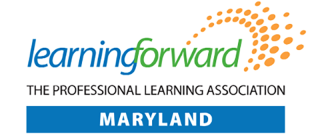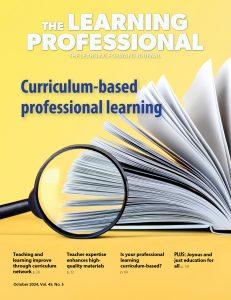DALLAS—June 26, 2013—In a new brief, Learning Forward examines how states, districts and schools can use a more comprehensive educator induction process to build the capacity of teachers and principals to successfully implement the new college- and career-ready content standards, as well as the related student assessments and educator effectiveness systems.
Meet the Promise of Content Standards: The Role of Comprehensive Inductionaddresses the shift in educator induction from informal, one-to-one mentoring toward a multi-faceted, multi-year system of planned and structured learning experiences for novice teachers and for some novice principals. With this move comes a new definition of comprehensive high-quality induction that is being promoted by a number of organizations, led by the New Teacher Center.
The brief explores the many components that make up this definition, along with several potential challenges for induction presented by the new content standards, assessments, and educator effectiveness systems.
It calls attention to the urgent need for schools, districts, and states to focus concerted, coherent efforts on successful implementation of the new standards for building educator capacity so that all students succeed. The brief also recommends new investments for federal, state, district, and school leaders to make in developing comprehensive induction systems.
Meet the Promise of Content Standards: The Role of Comprehensive Induction was published as part of Learning Forward’s ongoing initiative to develop a comprehensive system of professional learning that spans the distance from the statehouse to the classroom. The initiative, Transforming Professional Learning to Prepare College- and Career-Ready Students: Implementing the Common Core, is supported by Sandler Foundation, the Bill & Melinda Gates Foundation, and the MetLife Foundation.
The two-year initiative’s focus is on providing tools and resources to states and school systems as they work to implement the Common Core State Standards and new assessments.
“Comprehensive educator induction is fundamental to ensuring successful implementation of the Common Core standards,” said Stephanie Hirsh, executive director of Learning Forward. “In order to increase student success and have clear outcomes from professional learning, we must have a long-term plan for building educator capacity, supporting implementation, and the sustained resources the plan demands.”
High-quality, comprehensive induction should: integrate and model Common Core standards; ensure a coherent, aligned developmental continuum of in-service professional growth for educators; integrate evaluation feedback into the comprehensive induction system; tap teacher leaders to provide regular feedback to promote formative growth; and leverage innovative ways to access professional learning, such as the use of online e-mentoring.
Successful implementation of the content standards will require federal, state, district, and school leaders to take bold actions needed to build educator capacity so that all students succeed.
Among its strategies for success, the brief recommends:
Federal leaders should:
- Dedicate new funding to build the capacity of teachers and leaders to implement Common Core standards through development of comprehensive induction that is linked to new educator evaluation and support systems and to the content and pedagogy specified in the standards.
- Support research on and dissemination of best practices to support teachers as they develop expertise in teaching Common Core standards and on the impact of various components of comprehensive induction in improving student learning.
State leaders should:
- Require districts to provide comprehensive induction to all first- and second-year teachers and district and school administrators on the Common Core standards, new assessments, and educator evaluation and support systems.
- Provide guidance to districts on how to integrate standards, including the Common Core standards and teacher and leader standards aligned to the Common Core, into comprehensive induction, including into the selection and preparation of mentors and coaches so they are skilled in observing teaching to the Common Core standards and in offering high-quality feedback aligned to the content and pedagogy embedded in them.
School districts and individual schools should:
- Develop and maintain comprehensive induction aligned to Common Core standards for all first- and second-year teachers and leaders.
- Realign professional learning resources to prioritize preparation of and ongoing support for mentors based on content and pedagogy required by Common Core standards.






